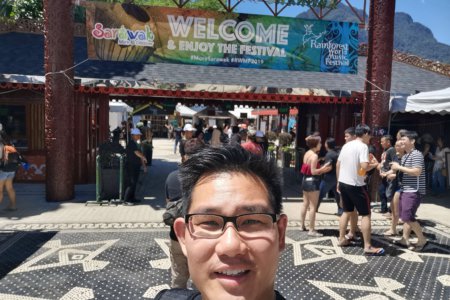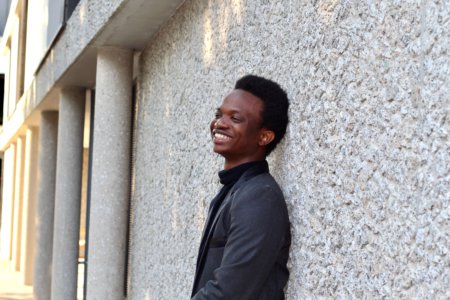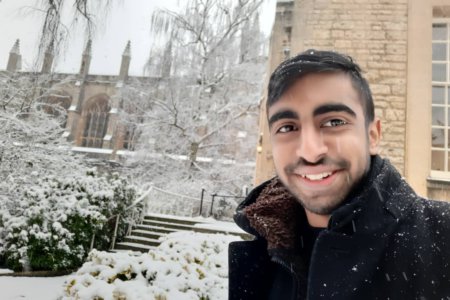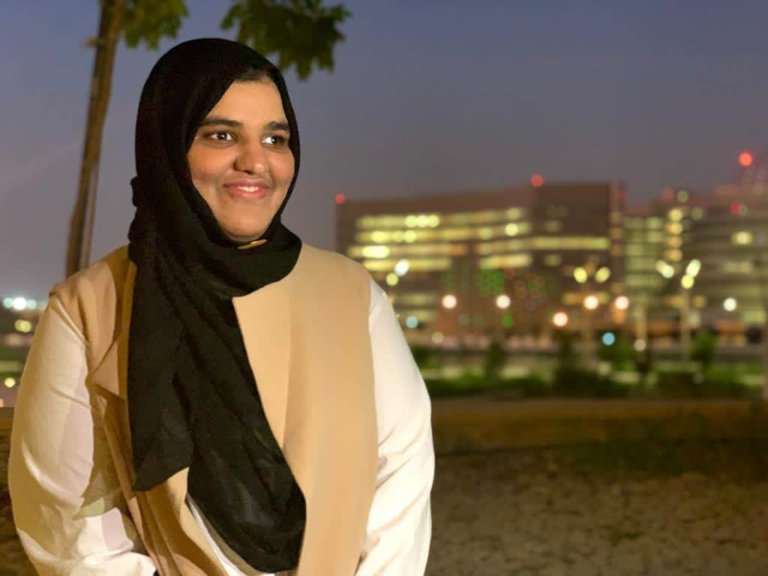
Khansa Maria from Pakistan, winner of a Rhodes Scholarship, is now pursuing a master’s at Oxford University. She is neither your regular scholar nor your run-of-the-mill Oxford student — but she is every bit as deserving of big feats as can be.
Khansa cannot see. To read, she uses screen-reading software. To walk, she uses a support cane. Her senses guide her movements, but it’s her steely resolve that has gotten her places.
Before Oxford, she was at another top-ranked university: Georgetown University in Qatar. Along with studying for a Bachelor of Science in Foreign Service, she’s also vice president of the Student Government Association, co-president of the Georgetown Debating Union (where she led the team to victory at the Qatar National Debating Championship), and a member of the Georgetown TEDx Club.
Maria wants more to achieve what she has. To start, she’s organising and speaking at several conferences on inclusivity, calling for better-designed communities fit for the differently-abled.
At Oxford, she’s studying public policy. The goal? Putting the “public” into public policy through laws that include all, not just the abled. Below we talk to this inspiring and accomplished scholar about life in Qatar, the Rhodes Scholarship and her plans after Oxford:
What made you apply for the Rhodes Scholarship and Oxford University?
Growing up, my grandmother would always talk about how she wanted me to go to Oxford University because it seemed to symbolise the pinnacle of what it meant to succeed. As I grew up I realised that the academic and personal development opportunities that Oxford University offered its students were unparalleled.
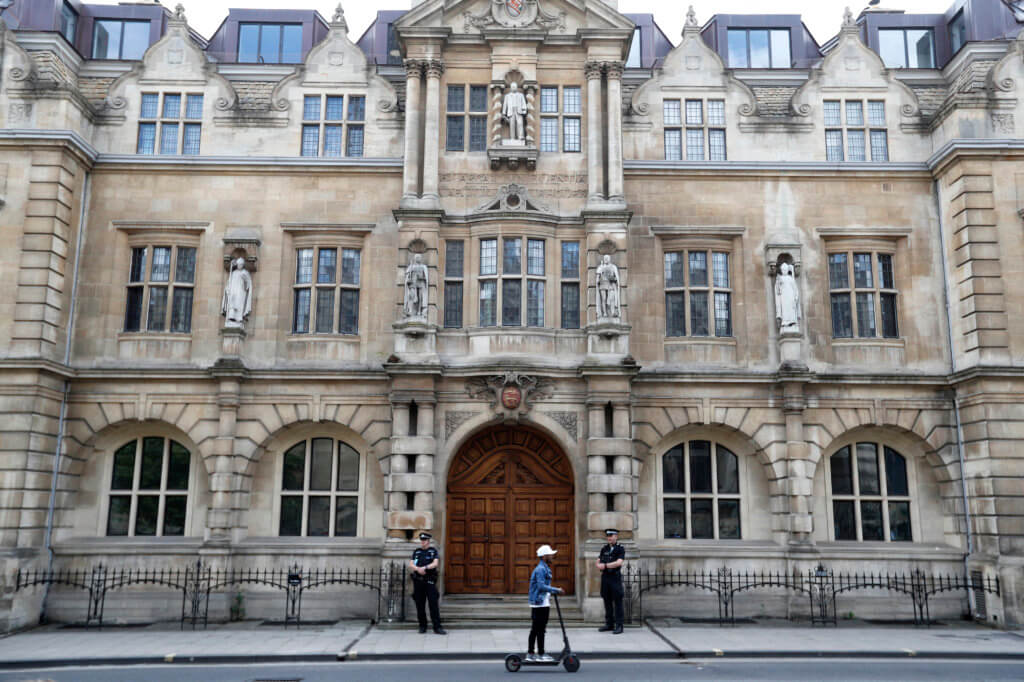
At Oxford, she’s studying public policy. The goal? Putting the “public” into public policy through laws that include all, not just the abled. Source: Adrian Dennis/AFP
But more than that, Oxford University had come to represent something that personified my dreams and aspirations of my family. Thus, I decided to apply and the Rhodes Scholarship provided not only an opportunity for complete financial support but more importantly a legacy of supporting leaders.
Extremely excited and grateful for this opportunity https://t.co/QjET4D84KN
— khansa Maria (@khansaMaria2) November 16, 2020
The Rhodes Scholarship also cares about people who have a real-world impact where the values strive to build a community with visionaries who care about making a change within the community as reflected within the core values.
What can you tell us about experiences that stand out for you as campus leader at Georgetown University and Qatar and your work with the US Embassy?
All the experiences I’ve had have given me a number of amazing memories to think back on. It’s very hard to choose as I was not only able to make amazing friends but I was able to go beyond my comfort zone and expand my horizons.
Whether it was debating with my teammates and winning at competitions or even organising panel discussions for the US embassy, each and every experience was valuable. The experience that mattered to me the most was standing up for my own rights.
This was through telling others around me what I needed to make things accessible. The best part of my advocacy was when people actually took note of things I spoke about and made it a point to include them.
What are some of the things you noticed on the evolution of disability rights in South Asia? What more should be done to include the disabled community better?
The thing that I noticed was that disabled voices were missing from mainstream spaces, whether it be in academia or policy making. People with disabilities are relegated to segregated spaces where we talk about how inspirational they are and how much we admire them.
Yet nothing ever seems to come out of these conversations and admiration. People with disabilities are not a part of the policy making or the policy enforcement process. Hence, disability rights has become a tagline that people use but do not apply practically.
View this post on Instagram
What can be done better is to involve people with disabilities in all aspects of the process and give them a voice. This can be used to create the change they want to see. Not only that, it’s important to educate everyone on a grass root level.
People need to know the importance of disability rights and about the experience of discrimination that people go through on a daily basis in schools or in companies.
After studying evidence-based policy intervention and social evaluation, what do you plan to do?
I plan to go back to my home country Pakistan. I want to work on designing inclusive policies that give people with disabilities the opportunities and the voice that they currently do not have.
Is there currently something you miss from home? If so, how do you substitute it?
Not really a thing but I miss my mother the most. There isn’t really a way to substitute her but I try to stay connected through audio calls. In terms of things, I miss the food a lot and after burning countless things I’ve learnt to cook enough to satisfy my cravings for food from home.








